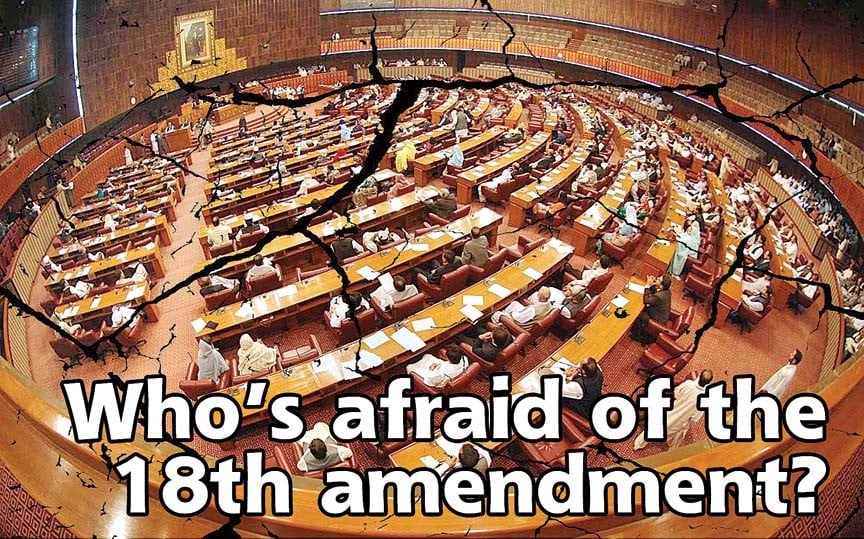

18th amendment is an exercise in learning that all Pakistanis must engage in. The parliament that was elected in 2008, after the brutal assassination of Benazir Bhutto the twice elected prime minister of Pakistan, aimed to set right the historic wrongs done to the constitution, the people and the federation. This was the culmination of a promise that the leaders of the two major political parties in exile had made with the people of their country and enshrined it in a document called the Charter of Democracy.
But the baggage of the centrist state was much older, expressed through arbitrary one unit schemes and leading to dismemberment of one part of the country. The ideals before the parliament were lofty, no doubt, but what it managed to achieve in the form of 18th amendment was unbelievable. Mindful that it was not a constituent assembly, this parliament amended 102 articles of the constitution in a manner that had never been done before, in the spirit of the 1973 constitution -- a testament to its maturity and collective wisdom.
Since constitutions are meant to be living documents, the 18th amendment too did not offer a perfect solution for all times to come. But the disrespect shown to the process, that led to this glorious moment in our history, in recent months and years is not just borne out of the problems of implementation. It only reflects how deep rooted the state’s centrist bias is and how keen it is to strike back.
So who is afraid of the 18th amendment?
Do the voices raised against it indicate a turf war between various institutions of the state? It is time to take stock of what kind of state do we in Pakistan want to build: a people-oriented welfare state or a security state; a federation with provincial autonomy, devolution and respect for local and regional cultures or a centrist state forcibly kept together under abstract notions of national interest.
Also read: Who’s afraid of the 18th amendment?
Federations are meant to be more equitable and happier but not necessarily all smooth. The irritants will inevitably be brought back to the parliament or taken to the courts to be resolved. But everyone must be clear about the intent and the spirit. This is what our Special Report today is all about.